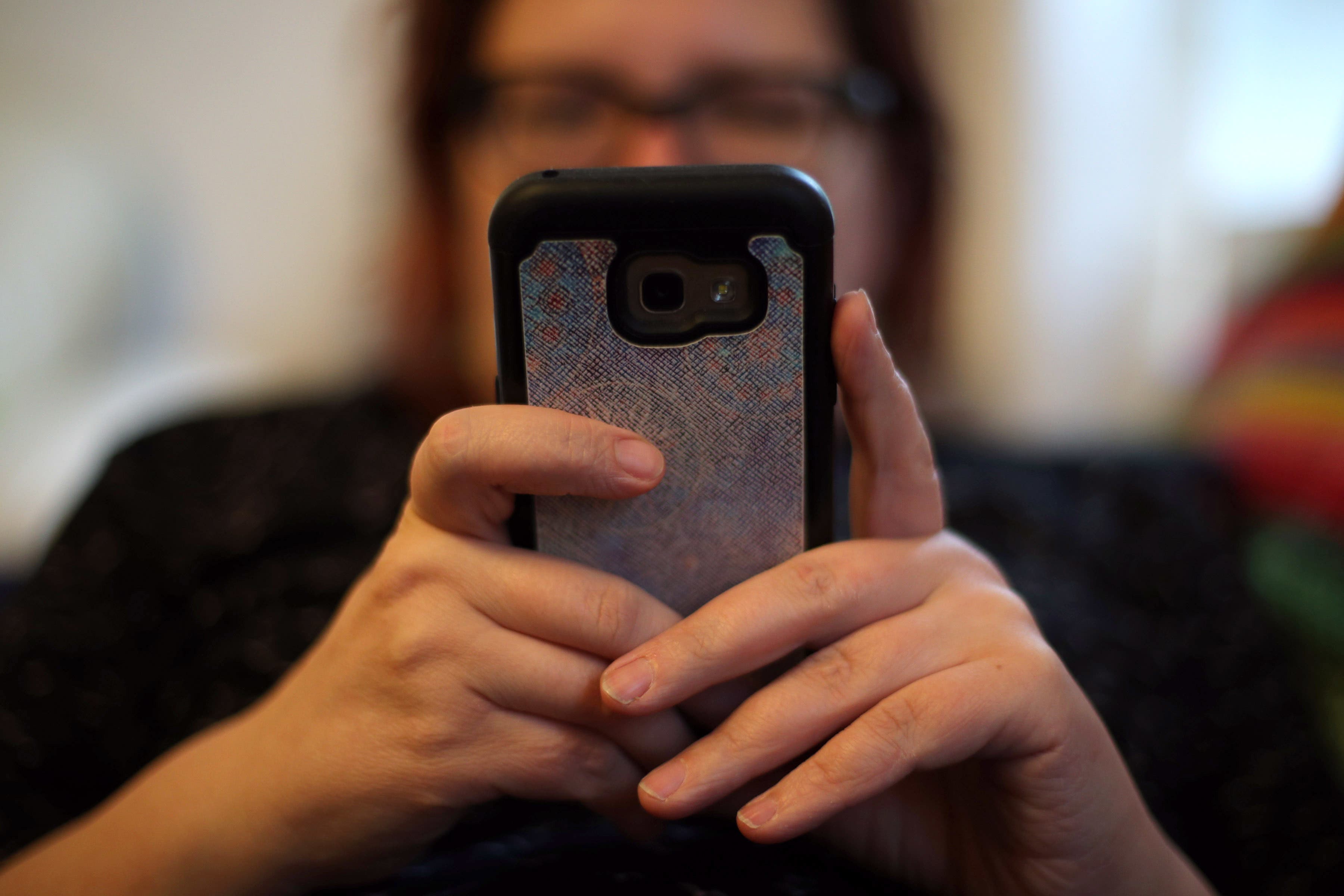People seeking mental health help ‘should be asked about problem gambling’
New guidance said people with depression or anxiety could be at a greater risk of gambling addiction

Your support helps us to tell the story
From reproductive rights to climate change to Big Tech, The Independent is on the ground when the story is developing. Whether it's investigating the financials of Elon Musk's pro-Trump PAC or producing our latest documentary, 'The A Word', which shines a light on the American women fighting for reproductive rights, we know how important it is to parse out the facts from the messaging.
At such a critical moment in US history, we need reporters on the ground. Your donation allows us to keep sending journalists to speak to both sides of the story.
The Independent is trusted by Americans across the entire political spectrum. And unlike many other quality news outlets, we choose not to lock Americans out of our reporting and analysis with paywalls. We believe quality journalism should be available to everyone, paid for by those who can afford it.
Your support makes all the difference.People who seek help for mental health issues should be asked about problem gambling in the same way they are asked about drugs, smoking and alcohol, new guidance has suggested.
According to the National Institute for Health and Care Excellence (Nice), those who visit an NHS health professional in England for depression, anxiety, or thoughts about self-harm or suicide due to a possible addiction, such as alcohol or drugs, could be at a greater risk of harm from gambling.
The NHS spending watchdog said questions should be asked about their gambling habits to ensure they can cope with their thoughts and urges.
In new draft guidance, Nice suggested patients should be encouraged to assess the severity of their gambling by using a questionnaire available on the NHS website.
Those who score eight or higher should seek support and treatment from gambling services.
Harmful gambling causes immense misery to all those who experience it. We want those needing help or who are at risk to be identified sooner and receive appropriate help
Health professionals should also discuss software blocking tools to limit online gambling and consider cognitive behavioural therapy (CBT) as an option.
In July, NHS England revealed about 1,400 people were referred for help for gambling addiction last year, up by a third on 2021.
Professor Jonathan Benger, chief medical officer and interim director of the centre for guidelines at Nice, said: “Harmful gambling causes immense misery to all those who experience it. We want those needing help or who are at risk to be identified sooner and receive appropriate help.”
Since 2019, NHS England has opened 12 gambling treatment clinics, with a further three set to open in the coming months.
It is planning to treat up to 3,000 people a year across the 15 facilities, as part of the NHS Long Term Plan.
Prof Benger added: “The independent committee who made these draft recommendations included both clinicians and people with personal experience of harmful gambling.
“They scrutinised all the available evidence to identify treatments and therapies that have been shown to work and offer good value for money.
“The result is this useful and usable advice to help NHS clinics as they develop their service.”
Gambling harms are a serious public health issue, which can affect anyone, and healthcare professionals are ideally placed to identify and help people experiencing them
Fiona Macleod, director of services at charity GamCare, said the Nice guidance is “an important step”.
“Identifying an issue with gambling as early as possible is vital to prevent harm from occurring later down the line, and we know that there is an important role that healthcare professionals can play in helping more people find the support they need,” she added.
“We believe these recommendations, if implemented, will present a greater opportunity to prevent gambling harms from occurring in the UK. They represent an important step in encouraging more people to seek support, through services such as those GamCare provides”.
Zoe Osmond, chief executive of GambleAware, also welcomed the draft guidance.
“Gambling harms are a serious public health issue, which can affect anyone, and healthcare professionals are ideally placed to identify and help people experiencing them,” she said.
“We welcome the development of guidelines to further inform treatment for those seriously affected by gambling harm and will be responding to the consultation with our views.”
NHS mental health director Claire Murdoch said: “Gambling addiction is a cruel disease that destroys people’s lives, and the NHS is already playing its part in treating it with four new specialist clinics opening in recent months and a further three opening later this year, so if you’re struggling, please come forward for help.
“We will work with Nice on this consultation process and while this new guidance will ensure the NHS can help even more people struggling with gambling addiction to receive evidenced-based treatment, it is vital that the billion-pound industry also takes action in line with the Government’s White Paper to stop people coming to harm in the first place.”
In April, the Government outlined plans to reform gambling to ensure regulation meets new challenges as the “landscape has changed significantly since 2005”.
For support, advice or information about gambling, contact the National Gambling Helpline on 0808 8020 133.